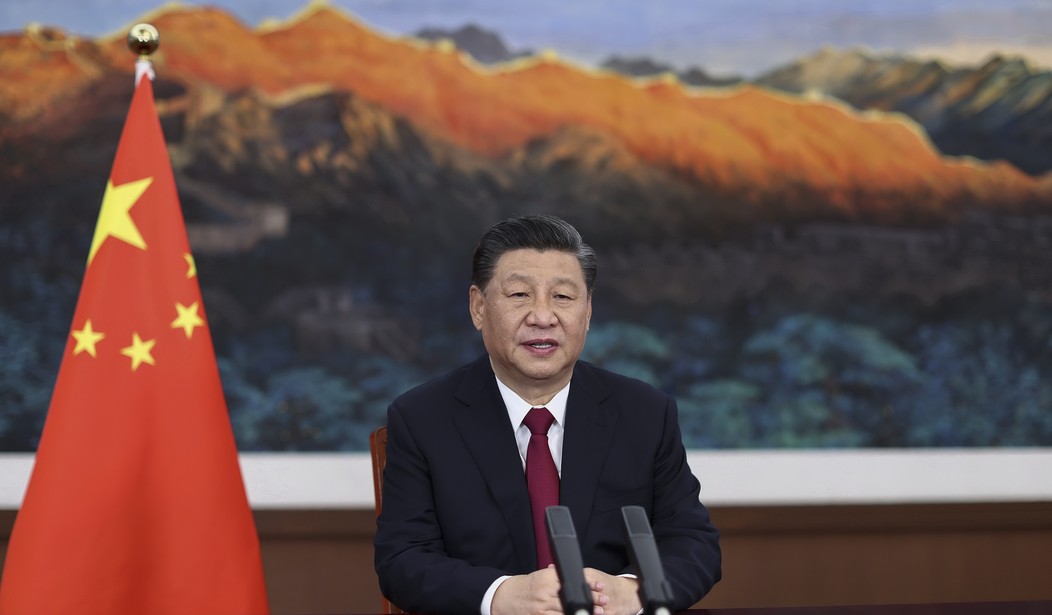When focusing on fighting the growing dominance of China, the United States would do better than to place too much trust in Great Britain for support.
On May 22, history was made when the U.K. Carrier Strike Group embarked on its first ever mission. With “nine ships, 32 aircraft, and 3,700 personnel,” as Seapower magazine reported, this was the “largest concentration of maritime and air power to leave the U.K. in a generation.” In an op-ed for the The Wall Street Journal, James Marson and Max Colchester, discussed the significance of the operation, and the ways in which the “British military muscle” would help the U.S. “counter Chinese influence.”
The move, the authors argued, sought “to cement Britain’s special relationship with the U.S.”
However, there’s just one problem, and it’s a pretty significant one. Britain also has a “special relationship” with another country, and that country happens to be China.
According to The Henry Jackson Society, a foreign policy and national security think tank, Britain is now “strategically dependent on China for 229 categories of goods. Fifty-seven of these have applications in critical national infrastructure.” In other words, when it comes to securing materials upon which British lives depend, China holds all the cards.
The Carrier Strike Group’s mission is, of course, worthy of our attention. But, one wonders, is the show of military strength more symbolic than a thing of actual substance? After all, following the trauma of Brexit, restoring pride in the nation is a top priority of the prime minister, Boris Johnson. But pride is no match for genuine power, and by handing over control of critical infrastructure projects to the Chinese, British officials have placed the livelihoods of millions of its people in the hands of arguably the most dangerous country in the world.
Recommended
If controlling a country’s infrastructure is essentially the same as controlling a country, which it appears to be, Beijing appears to control Britain. This might seem like an odd statement to make – but why? Remember, this is how the Chinese Communist Party (CCP) operates. Through its Belt and Road initiatives, the CCP solidifies its influence by controlling the infrastructural makeup of multiple nations around the world.
Control of infrastructure is just one string in the CCP’s bow, however. Another method employed by Xi Jinping and his colleagues involves the control of educational institutions. In Britain, China’s control of universities is clear for all to see.
In a recent op-ed for FT, Tom Tugenhadt discussed British universities' growing reliance on funding from China. According to the author, “the UK has overtaken the US as the most desirable destination for Chinese students.” Now, before I am accused of racism, this is not to imply that foreign students pose a risk to the UK. No, as Tugenhadt argues, an “overreliance” on China as a source of students is the problem. His concerns are warranted. Britain is home to some 480,000 foreign students; 142,000 of these, according to Tugenhadt, are Chinese. In other words, 30% of Britain’s foreign students are coming from China.
This is highly problematic. “If the number of Chinese students willing to study in the UK were to substantially decrease,” writes Tugenhadt, “as the result of geopolitical tensions, for instance, some of our universities could be left in dire straits.”
In February of this year, in a well written piece for Unherd, titled “How China bought British universities,” Mark Edmonds argued that “Britain’s university sector simply could not do without Beijing’s moneybags.”
This is a cold, hard fact. Nine of the most prestigious universities in the UK rely on Chinese students for more than 20% of their overall revenue. Of all its assets, Britain's education sector is arguably its most lucrative.
In the Unherd article, Nick Hillman of the Higher Education Policy Institute declares that the British universities appear to have “been putting too many eggs in the Chinese basket.” This is a member of the higher education industry publicly declaring his concerns, albeit in an alarmingly understated, quintessentially British manner.
A few weeks after the Unherd piece, the UK’s former universities minister, Jo Johnson, spoke about a dangerous precedent being set; British universities, he warned, were (and still are) being swayed significantly by Beijing’s interests. Over the past two decades, scientists in the UK have been working closely with Chinese researchers on sensitive topics like national security and automation. In February, the Times reported that almost 200 British academics at more than a dozen universities across the UK were being investigated on suspicion of assisting the Chinese government to build weapons of mass destruction.
A recent study, which the aforementioned Johnson spearheaded, identified a significant increase in research funding from China.
If China stops investing in the British education system, the chance of economic failure increases dramatically. If the nation’s education sector fails, economic failure is not improbable.
The author Bell Hooks describes dependency “as the breeding ground for abuses of power.” Britain is clearly dependent on investment from China, now more than ever before.
Which brings us back to that powerful fleet being assembled; how powerful is Britain, really?
Considering it just experienced its worst economic performance for more than 300 years , and the downward spiral is expected to continue, the answer appears to be not very.
Britain’s infrastructure and universities are essentially controlled by China.
When it comes to looking to Boris Jonson and his colleagues for genuine support, the U.S. would do well to remember that empty vessels make the most noise. That fleet that set sail, I argue, was more symbolic than significant. A great power would never hand over the keys of the house to China.

























Join the conversation as a VIP Member